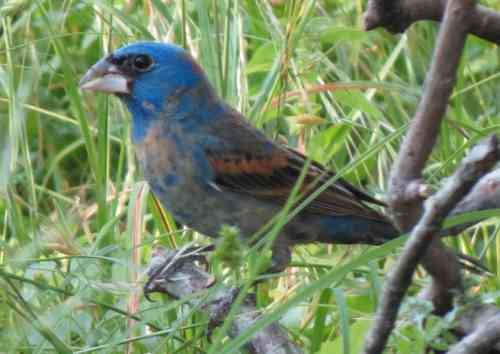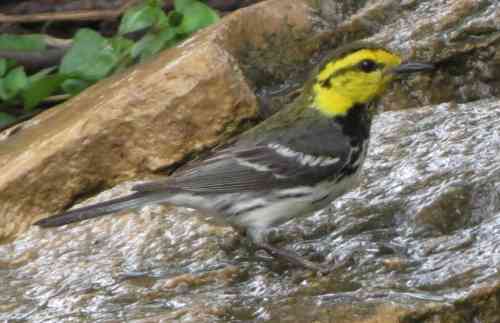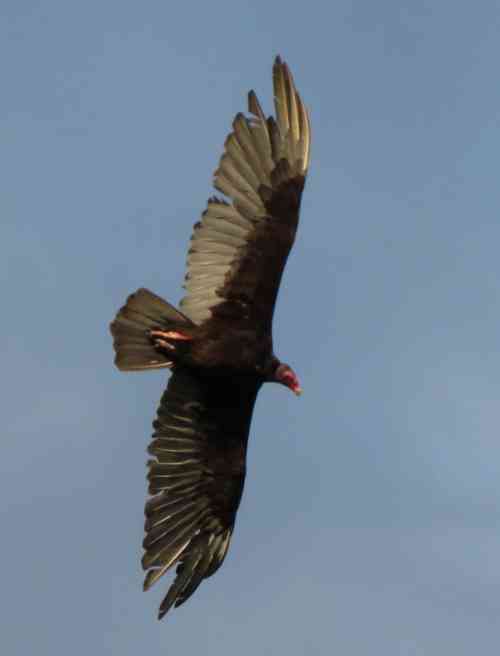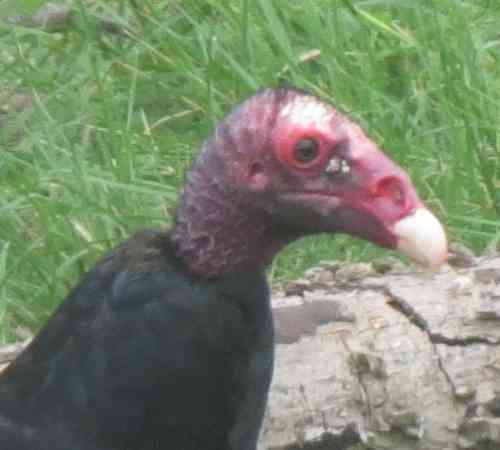Deprecated function: Array and string offset access syntax with curly braces is deprecated in include_once() (line 20 of /home/caucusni/public_html/includes/file.phar.inc).
GREAT pic BR! Is it an Aloe of some sort? Great shapes and contrast. Beautiful photo!
up
3 users have voted.
—
We cannot solve our problems with the same thinking we used when we created them.
Look deep into nature, and then you will understand everything better.
both - Albert Einstein
I'd have loved to have been there for the testing. They can get downright drippy with sticky, I believe the function is to catch pollen. Good ones you can pick up by lightly putting a finger on TOP of it... a friend told me. Once I had a White-lined Sphinxmoth that apparently loved it too much, gently as possible I pushed it off, and it fell to the ground, to baked to fly. It was then I knew...
up
4 users have voted.
—
We cannot solve our problems with the same thinking we used when we created them.
Look deep into nature, and then you will understand everything better.
both - Albert Einstein
Awesome shots sopro! Great illustration of how background changes everything. The field guide to Wildflowers of the Texas Hill Country was shot mostly in the wild with an assistant placing a black background behind the flowers. In the wild there often is soooo much distraction in the backgrounds, it solved the problem with great results. I think it gives the flower more punch, and the photo more contrast. Which I like. GREAT work!
up
4 users have voted.
—
We cannot solve our problems with the same thinking we used when we created them.
Look deep into nature, and then you will understand everything better.
both - Albert Einstein
Love yer light and lighting Janis. Beautiful, very well done. Great images.
up
4 users have voted.
—
We cannot solve our problems with the same thinking we used when we created them.
Look deep into nature, and then you will understand everything better.
both - Albert Einstein
This is a first-summer (aka first-year or first spring) Blue Grosbeak. It takes two years for many songbirds to acquire full adult plumage. So the females can tell the older more experienced full adults. Its second year it will be fully blue of body. A bodacious beak.
This is an adult female Golden-cheeked Warbler at our birdbath a month ago. Which means she is done breeding for the year, they usually just nest once per season. They wander around and molt before leaving the country for Mexico and Guatemala where they spend July to March.
Turkey Vulture
This was through the window and screen so a bit clouded... the head a bit closerup.
be well, and play it safe!
up
10 users have voted.
—
We cannot solve our problems with the same thinking we used when we created them.
Look deep into nature, and then you will understand everything better.
both - Albert Einstein
I wondered what the grosbeaks eat, having such formidable beaks. I can imagine that it is very efficient at either cracking a snail's shell or dragging it out.
Mostly insects and seeds. Eats many insects, especially in summer, including grasshoppers, beetles, caterpillars, cicadas, praying mantises, and others, also spiders and snails. Also eats many seeds (may be majority of diet at some seasons), including those of weeds and grass, also waste grain.
I guess the warblers don’t like it when the climate becomes more hot and dry.
We had a pair or Rose Breasted Grossbeaks stop at our feeder behind our house near Nashville one spring morning about ten years ago. By the time we moved in January 2018 we were getting several who stayed for several days to a couple weeks. The spring of 2018 there were four pairs who hung out at least two weeks.
Now we have to make due with hordes of hummingbirds. We've, by we I mean my wife, identified 8 varieties. The most common is the violet eared sylph, followed by the little train bearers. My favorite is the purple throated wood stars. There are three females and one male of these thumb size hummers who dominate the little 5 ounce feeder hanging from the cover of our terrace that runs the full length of the house in the back. The girls showed up a couple months ago and haven't left. The little male, then a juvenile, showed up a couple weeks later. I saw him on the small feeder in the front today. His metallic purple chest shield is developing nicely. Most of the time he hangs out in the back giving the much bigger slyphs hell. I want photos or video of these little guys but they're really shy. There are a couple slyphs who will get in my face when I'm refilling a feeder or sit on the cable railing next to Kevin the Wonder Dog giving him hell for having the gall to lie down near his feeder. I even had one tank up while I was holding the feeder. Little bugger couldn't wait for me to rehang it.
We haven't been able to go to Laguna LLaviucu, a reclamation wetland in a mountain valley (along an old Inca road to the coast), since February. There are always Andean ducks, Andean gulls, Andean teal, and occasionally the gray breasted mountain toucan around the lake. Cuenca has reopened the city parks and I'm hoping to be able to go out to Llaviucu soon. Last week we took a chance and drove up into the Cajas to Tres Cruces to look around.
up
3 users have voted.
—
"Ah, but I was so much older then, I'm younger than that now..."
Both taken on an iPhone 6S. The orostachys is about thumb size taken with a clip on macro lens. My wife does wonders with an iPhone. I'm just a putz. With or without an iPhone.
up
5 users have voted.
—
"Ah, but I was so much older then, I'm younger than that now..."
Comments
Mucking about with macro from a while back
At the moment, a hot sun is causing much reflection.
Thanks for hosting Janis.
Gëzuar!!
from a reasonably stable genius.
Nice B&W, BR
MAGA
Morons
Are
Governing
America
great pic BR!
GREAT pic BR! Is it an Aloe of some sort? Great shapes and contrast. Beautiful photo!
We cannot solve our problems with the same thinking we used when we created them.
Look deep into nature, and then you will understand everything better.
both - Albert Einstein
Nice spidery, spiney plant, Bollox
I'm glad you've got some bright sun to enjoy.
Thanks for Friday Photos tonight, Janis.
Nice shots, Janis. I really love that first shot.
A pair of Red Hibiscus portraits I shot this afternoon.

MAGA
Morons
Are
Governing
America
Hey y'all posting those pistils
Reminds me of the crop from last year.
Had all these see-thru tubules when the picking time got ripe.
Turned a bit amber, sticky almost.
oh, but the highs!
Zionism is a social disease
may be sex organs for these plants
not sure how they all get down with the propagation thing
may be just a matter of some pollination thing
like teenagers
Zionism is a social disease
great pic QMS
I'd have loved to have been there for the testing. They can get downright drippy with sticky, I believe the function is to catch pollen. Good ones you can pick up by lightly putting a finger on TOP of it... a friend told me. Once I had a White-lined Sphinxmoth that apparently loved it too much, gently as possible I pushed it off, and it fell to the ground, to baked to fly. It was then I knew...
We cannot solve our problems with the same thinking we used when we created them.
Look deep into nature, and then you will understand everything better.
both - Albert Einstein
I think you might have found the secret ingredient
of the vaccine.
Very luscious.
an hibiscus;
oh my!
beautiful phtos SP!
Awesome shots sopro! Great illustration of how background changes everything. The field guide to Wildflowers of the Texas Hill Country was shot mostly in the wild with an assistant placing a black background behind the flowers. In the wild there often is soooo much distraction in the backgrounds, it solved the problem with great results. I think it gives the flower more punch, and the photo more contrast. Which I like. GREAT work!
We cannot solve our problems with the same thinking we used when we created them.
Look deep into nature, and then you will understand everything better.
both - Albert Einstein
Hi Social
The second hibiscus photo made me think it might have been an inspiration of the functional style of a gramophone.
Great pix Janis!
Love yer light and lighting Janis. Beautiful, very well done. Great images.
We cannot solve our problems with the same thinking we used when we created them.
Look deep into nature, and then you will understand everything better.
both - Albert Einstein
Thank you dystopian
The indoor lighting is a treat when the winter season is here.
here's a few
Great pix all! Thanks for the eye-candy!
This is a first-summer (aka first-year or first spring) Blue Grosbeak. It takes two years for many songbirds to acquire full adult plumage. So the females can tell the older more experienced full adults. Its second year it will be fully blue of body. A bodacious beak.

This is an adult female Golden-cheeked Warbler at our birdbath a month ago. Which means she is done breeding for the year, they usually just nest once per season. They wander around and molt before leaving the country for Mexico and Guatemala where they spend July to March.

Turkey Vulture


This was through the window and screen so a bit clouded... the head a bit closerup.
be well, and play it safe!
We cannot solve our problems with the same thinking we used when we created them.
Look deep into nature, and then you will understand everything better.
both - Albert Einstein
Nice bird photos, dystopian.
We do have Blue Grosbeak in San Diego but I've never seen one. I do know I would love to get a shot of one.
MAGA
Morons
Are
Governing
America
Appreciated as always, dystopian
I wondered what the grosbeaks eat, having such formidable beaks. I can imagine that it is very efficient at either cracking a snail's shell or dragging it out.
I guess the warblers don’t like it when the climate becomes more hot and dry.
I really like the grossbeaks.
We had a pair or Rose Breasted Grossbeaks stop at our feeder behind our house near Nashville one spring morning about ten years ago. By the time we moved in January 2018 we were getting several who stayed for several days to a couple weeks. The spring of 2018 there were four pairs who hung out at least two weeks.
Now we have to make due with hordes of hummingbirds. We've, by we I mean my wife, identified 8 varieties. The most common is the violet eared sylph, followed by the little train bearers. My favorite is the purple throated wood stars. There are three females and one male of these thumb size hummers who dominate the little 5 ounce feeder hanging from the cover of our terrace that runs the full length of the house in the back. The girls showed up a couple months ago and haven't left. The little male, then a juvenile, showed up a couple weeks later. I saw him on the small feeder in the front today. His metallic purple chest shield is developing nicely. Most of the time he hangs out in the back giving the much bigger slyphs hell. I want photos or video of these little guys but they're really shy. There are a couple slyphs who will get in my face when I'm refilling a feeder or sit on the cable railing next to Kevin the Wonder Dog giving him hell for having the gall to lie down near his feeder. I even had one tank up while I was holding the feeder. Little bugger couldn't wait for me to rehang it.
We haven't been able to go to Laguna LLaviucu, a reclamation wetland in a mountain valley (along an old Inca road to the coast), since February. There are always Andean ducks, Andean gulls, Andean teal, and occasionally the gray breasted mountain toucan around the lake. Cuenca has reopened the city parks and I'm hoping to be able to go out to Llaviucu soon. Last week we took a chance and drove up into the Cajas to Tres Cruces to look around.
"Ah, but I was so much older then, I'm younger than that now..."
Orostachys Iwarenge
Osteospermum
Both taken on an iPhone 6S. The orostachys is about thumb size taken with a clip on macro lens. My wife does wonders with an iPhone. I'm just a putz. With or without an iPhone.
"Ah, but I was so much older then, I'm younger than that now..."
Those are beautiful macros, vtcc73 and partner
What a special African Daisey
https://www.flickr.com/photos/andreaskay/favorites/with/14297051233/ligh...
Thanks for the great visual fix.
Rec'd!!
Inner and Outer Space: the Final Frontiers.